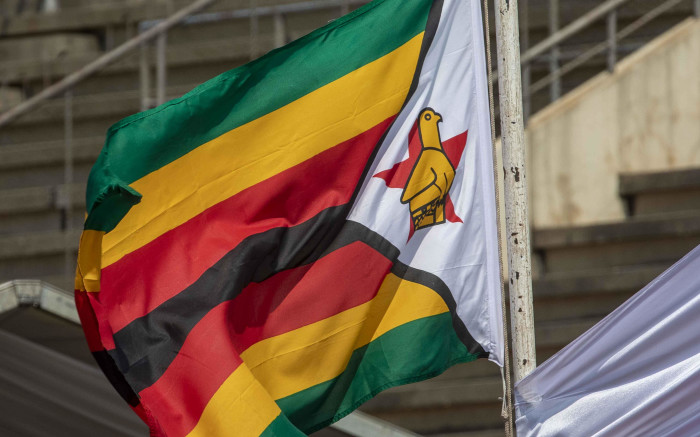[ad_1]
President Emmerson Mnangagwa signed a $ 3.5 billion deal with white farmers in July as compensation for their losses. Under the agreement, they will not be compensated for the lost land, but for the infrastructure and developments they made on their old farms.
Flag of Zimbabwe. Image: EWN
HARARE – A group of Zimbabwean liberation war veterans have filed a legal challenge against the government’s plans to compensate former white farmers whose properties were confiscated during controversial land reforms two decades ago.
The late former Zimbabwean President Robert Mugabe launched land reforms in 2000, taking over white-owned farms to reverse a historic land ownership imbalance that favored the white minority population.
More than 4,000 of Zimbabwe’s 4,500 white commercial farmers were evicted from their properties, which were turned over to black tenants.
Current Zimbabwean President Emmerson Mnangagwa signed a $ 3.5 billion (three billion euros) deal with white farmers in July this year as compensation for their losses.
Under the agreement, they will not be compensated for the lost land, but for the infrastructure and developments they made on their old farms.
Payments have yet to be delivered, but reconciliation attempts have sparked uproar among liberation war veterans who led the sometimes violent farm seizures.
Last week, a dozen ex-combatants filed a lawsuit in the High Court against the Mnangagwa administration.
In an affidavit dated September 10, but seen by AFP on Thursday, the veterans accused the government of prioritizing complaints from “white settlers” over compensation for losses suffered during the 1972-1979 liberation struggle.
The group said the “recent concerns” of white farmers were considered “more deserving of attention” than the problems faced by the black population from the “pre-colonial period … to the post-independence period.”
The matter has not yet been heard by the court.
Around 27,000 people died in a 1972-1979 war against British colonial rule, which ended in 1980.
Most of the dead were black Zimbabweans fighting a white minority regime led by Ian Smith.
Mugabe came to power in 1980 and ruled the southern African country for nearly four decades, until he was overthrown in a military coup in 2017.
Both Mugabe and his successor Mnangagwa had vowed never to reverse the land reforms.
Farm grabs brought Zimbabwe’s agricultural production to its knees and contributed to its long-standing economic woes.
[ad_2]
